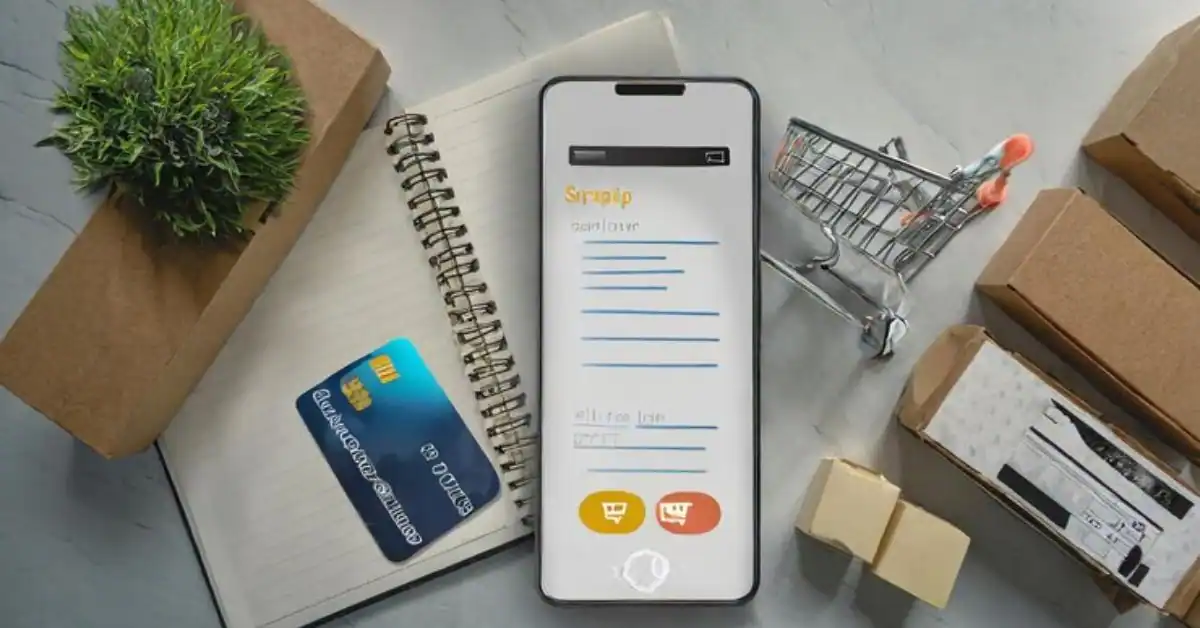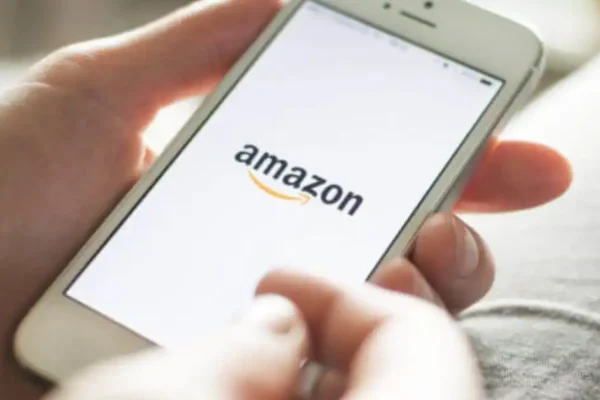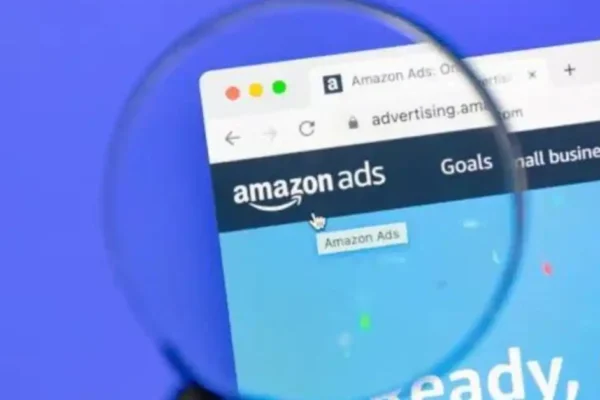The retail sector has undergone a massive overhaul in recent years. Shoppers are heading to online stores in their droves in light of the Covid19 pandemic, forcing shoppers to retreat from the high street and rely on online markets. More and more retailers are creating an online presence in order to take advantage of the massive number of digital buyers making purchases on their computers, tablets or smartphones. To do this, they need a payment gateway, which allows them to take card or digital currency payments online.
The numbers for businesses setting up their eCommerce operations is encouraging. More than 75% of people shop online more than once a month. Last year over two billion people purchased goods or services online and e-retail sales topped more than $4.2 trillion worldwide. However, the global online shopper conversion rate is just 2.17%. That means that businesses can’t afford to let the user experience on their eCommerce sites drop, even for a second. If your payment gateway is buggy, or hard to understand, then those valuable shoppers will give up, abandon their online shopping carts and find an easier service.
Whether you’re a startup, a one-man band, or a global eCommerce empire, picking the right payment gateway for your eCommerce site is vital. Undoubtedly, you will have already heard of the well-known players, but it’s not a case of one-size-fits-all.
There are a wide range of payment gateways out there for eCommerce store owners to choose from. Finding the right fit will depend on a variety of factors, from location to budget, to website integration and customisation options, and everything in between. To help make sense of this technology we’ve rounded up the top payment gateways for eCommerce. We’ll look at what makes these providers stand out, how much they cost and which will work best for your business.
- What are the top payment gateways for eCommerce?
- Models of B2B Ecommerce Payments
- What to Look for in a B2B Payment System
What are the top payment gateways for eCommerce?
When we think of payment gateways there are several names that spring to mind. Here’s our pick for the best payment gateways for eCommerce:
- Worldpay
- PayPal
- Amazon Pay
- Stripe
- 2Checkout
- Authorize.net
- Opayo
- Square
- Klarna
These services all have different pros and cons, so picking the right one for your business will take a little thought. Just because one option is a globally recognised name, does not mean that it is the best and only choice for your eCommerce store. The top payment gateways also offer flexibility, the ability to customise, good security and customer support. With that in mind, let’s look a little deeper into the top payment gateway options, and what eCommerce store owners should consider when choosing a new service.
How much does a payment gateway cost?
Top of mind when considering any new tool for your business is pricing.
| Service | Pricing | Stackoverflow questions* |
| Worldpay | £19.95 per month, or 2.75% of each sale plus 20p | 128 |
| PayPal | 2.9%+ £0.30 of each sale | 29,390 |
| Amazon Pay | 2.7% + £0.30 of each sale | 85 |
| Stripe | 1.4% + £0.20 for European cards or 2.9% + £0.20 for non-European cards | 12,399 |
| 2Checkout | From 3.5% of £0.25 for each sale | 157 |
| Authorize.net | From £0.10 per sale+ Monthly Gateway fee of £19 | 1,379 |
| Opayo | £25 per month for 350 transactions | 553 |
| Square | Online payment transaction fee of 1.9% (European cards) or 2.9% (non-European cards) | 1,188 |
| Klarna | 2.49% + 20p per transaction for UK cards. Other currencies vary | 50 |
* The Stackoverflow questions total number can suggest the scale of the developer community behind each payment processor
What is the most popular payment gateway?
Globally, PayPal is the most widely used payments platform. More than 15 billion transactions were completed in 2020 through PayPal payments, and 227 million users and merchants use the platform. In the UK the most popular payment gateway is Worldpay. It processes around half of all payments made online in the UK.
Popularity brings brand recognition, so it’s not surprising that many eCommerce store owners gravitate towards these names. After all, it’s likely that their customers will recognise and trust these brand names as well. However, this is not the only consideration when choosing a payment gateway.
Which is the best payment gateway for an international business?
If your business deals with customers from around the world, then you will need to make sure that your payment gateway is capable of processing a variety of credit card payments in different currencies. You should also check whether the fees change if you’re processing payments from abroad.
Worldpay supports more than 120 currencies and is, therefore, a good choice if you have a global customer base. 2Checkout is available in almost 90 countries and supports all major credit cards, which makes it another good option for those with an international business.
What is the best payment gateway for a startup?
Square is a potentially good choice for a payment gateway for a startup business. The company claims transparent pricing and is relatively quick to set up. There are free features that will appeal to businesses on a tight budget. There are also no long-term contracts, so startups will be able to experiment with the service without worrying about the repercussions of cancelling.
How do I choose a payment gateway?
Apart from the obvious factors like cost and ease of use, there are other things you will need to consider when choosing a payment gateway for your eCommerce store.
Security guarantee
The most important one is security. You want your customers to feel that it is safe to spend their money on your website. Make sure that any provider you choose follows the appropriate security standards. Do you need a merchant account as well as a payment gateway, which stores payments until they have been approved by the customer’s bank? Some payment gateway providers will offer this as well.
User experience
Next, how easy is it for your customers to pay? You want to ensure a slick user experience on all areas of your website, including the final payment stage. Does the payment gateway integrate well with platforms like Shopify? Can customers pay using mobile digital wallets like Apple Pay or Google Pay?
Ability to customise
Customisation features are important to some businesses that want to ensure that the look and feel of the payment gateway matches their branding. PayPal and Authorize.net offer users customisable systems, although you may need to pay extra.
Customer support
Finally, you should consider the level of customer support you will need. Even the most experienced eCommerce store owner will occasionally need a helping hand. This is where providers like Square fall down since it doesn’t have 24/7 customer support. Other services like Worldpay offer more customer support, including online and over the phone.
Of course, the best way to choose the right payment gateway for your business is to get a thorough idea of what each provider offers. Let’s take a look at our top picks.
Worldpay
Worldpay is the biggest payment processor in the UK, so if you’re based in the UK you can be confident that you already have this brand recognition. Another plus for businesses choosing this service is that, as well as Worldpay Payment Gateway, you can also get Worldpay Card Machines. Essentially, if you have a physical shop on the high street as well as an online presence, you can manage your customer payments all from one provider.
If you want to give your customers a slick user experience, then it helps that they don’t need to leave your website when making a payment with Worldpay.
For those interested in security, Worldpay is well known for its advanced fraud protection, so you and your customers can rest easy knowing that any payments made on your site are processed safely. They also look after data compliance for their customers, reducing the risk of fraud and data breaches.
Worldpay also has a simple fee structure that appeals to many businesses. However, there are cancellation fees to be aware of, which may be an issue for some smaller businesses or new startups. Finally, real-time reporting is available to Worldpay customers, which is handy for businesses who wish to dig deeper into their analytics.
Pros:
- Very secure
- Choice of pricing
- Recognised brand
Cons:
- Multiyear contract comes with cancellation fee
- Pricier than other competitors
PayPal
PayPal is a household name and as such, customers will feel comfortable using this payment method on your site. Because it’s so well recognised and has been around for a while, the service is easy to set up, which makes it appealing for any business, but especially those just starting out or with less expertise.
If business owners are worried about taking a gamble with a new payments gateway, then Paypal has some reassuring numbers. The company claims a 44% higher checkout conversion rate. Paypal is also a good option if you have a global customer base since it accepts cards from around the world. With 200 countries and 25 different currencies supported, you can be confident that your customers will be well-served wherever they are based.
If you are confident that your sales figures will be consistently high, then PayPal is a good choice for your budget. However, for businesses that make more modest sales PayPal’s pricing structure is more expensive.
Sadly, there is one flaw with PayPal, at least from an online retailer’s perspective. Customers have to leave your site in order to pay, which can disrupt the user experience and the connection to your brand. However, you can work around this by upgrading to the pro account which offers an in-site checkout.
Pros:
- Easy to use
- Can handle international payments
- Trusted brand
Cons:
- Lower sales mean higher fees
- Customer’s taken out of site to pay
Amazon Pay
Another giant in the eCommerce world, Amazon Pay already has a reputation for smooth, easy payments thanks to the Amazon online marketplace. Many customers will already be familiar with Amazon’s checkout process and will appreciate the speed of the one-click checkout.
Millions of people already have an Amazon account, and the fact that Amazon Pay is able to re-use the payment details already stored in users accounts means that customers can expect a simple, streamlined payments process.
Although Amazon is a globally recognised brand, if you’re accepting international payments, you do need to be aware of a cross border charge of 1.5%.
For those looking to customise their payments gateway, Amazon Pay is a good choice. It integrates with your website’s API, allowing you to customise the payment step with your own store’s branding.
Pros:
- Fast checkout
- Integration with your own website
- High number of existing Amazon accounts
Cons:
- Email-only customer support
- High fees for those with low volume of sales
Stripe
Stripe is a payment gateway that offers a high level of customisation, which is great for those who want tight control over the look and feel of their website. It’s easy to integrate this service, using the website API. ECommerce store owners can also integrate it using their existing ERP systems, invoicing systems and shopping carts.
Stripe accepts payments in 150 currencies, so it’s a great option for those who have customers outside of their native land. There’s even a plugin that allows you to accept Bitcoin. However, the fees are higher for non-European cards, so this is something to bear in mind if you’re operating a global business. Stripe is also PCI compliant, making it a pretty well-rounded option.
The downside to Stripe is that it’s not for the novice. It does require some technical know-how to get going, although the customer dashboard is pretty intuitive. There are also reports of tricky customer service, so if you’re new to this space, then Stripe may not be the right choice for you.
Pros:
- Excellent integration
- Highly customisable
- Payments in different currencies accepted
Cons:
- Needs a tech-savvy user
- Customer service issues
2Checkout
2Checkout supports over 200 countries and 100 currencies and accepts all major credit cards making it a good choice for international sellers. It also offers a localised experience and has a choice of 15 languages setting your eCommerce store up for a truly global selling experience.
For those who want to be sure that they are providing the best customer experience possible, 2Checkout allows users to demo the customer buying experience, so you can check everything works smoothly before going live. You also get reporting and analytics tools, as well as easy customisation on your website thanks to detailed documentation.
In addition to simple integration, users can also use recurring billing, making the process easier to manage.
Pros:
- Supports multiple currencies and languages
- Easy integration
Cons:
- Expensive
Authorize.net
Authorize.net is one of the oldest payment processing gateways in the world, and as such has built up a list of partnerships with a range of merchant account providers. Thanks to this the payment gateway is able to accept payments from all major credit cards as well as various digital wallets like Apple Pay. With Authorize.net retailers can take payments online or in a brick-and-mortar store.
If users need to implement subscription or recurring billing, this is an option with Authorize.net. The solution is also highly customisable and provides users with a simple, intuitive platform to use. If customers need assistance, the service has a good reputation for customer support through a range of channels.
Security is also high on the agenda for Authorize.net, thanks to its PCI compliance. There’s also an Advanced Fraud Detection Suite which users can access for free.
While businesses using Authorize.net can accept payments from almost anywhere in the world, only those registered in the U.S, Canada, the U.K, Europe or Australia can use the platform.
Pros:
- Automated and recurring billing
- Robust security
Cons:
- Businesses registered outside the U.S, Canada, the U.K, Europe or Australia will need to look elsewhere
Opayo
Opayo has a reputation as an efficient service as it allows you to record all your sales and transactions. This data is then stored within Sage (an accounting software) which allows you to easily view and measure your financial incomings.
Opayo offers a payment processing gateway that can be customised and is able to integrate with Woocommerce, BigCommerce and Shopify.
The service is also well-known for its security. It has a PCI compliance rating of 1, which is the highest rating a payment gateway provider can achieve. However, a downside of this service is that it can hold on to funds for quite a while.
Pros:
- High security rating
Cons:
- Not for the tech novice
- Holds on to funds
Square
Square can be used for payments made in a physical and online store, making it a great solution for businesses expanding from the high street to the online world. The fact that Square has partnered with website builders Wix and Weebly, and is easy to set up, means that it will appeal to startups and retailers looking to create an online presence quickly.
For businesses looking to target customers on social media, integrations on Square allow selling on platforms like Facebook and Instagram, which is a nifty little extra. While it accepts digital payments from Apple Pay and Google Pay, it doesn’t support PayPal, which may put some people off.
If your technical expertise is limited, then you can make use of the templates Square provides to set up the payments gateway on your website. There is also an API integration available, but this will require some expertise.
If you think you’ll need regular customer support, then Square may not be the right option for you. There is a customer support phone service, but it only operates during business hours.
Pros:
- Social media integrations
- Good for physical and online sellers
Cons:
- Limited customer support
Klarna
Swedish FinTech payment gateway Klarna first burst onto the scene in 2005. It aimed to disrupt the online payments scene and make it easier for people to shop online.
Klarna stands out for offering customers a “buy now, pay later” plan. This allows customers to buy expensive items while spreading out the cost over time for more affordable payments. This easy to access financing could potentially help businesses boost their sales by appealing to customers who want their pricey products, but don’t have enough money in the bank just yet.
One of the downsides of Klarna is the varying pricing, which is a little hard to understand. However, the 24/7 customer support means that there is always someone to ask if you need clarification
Pros:
- Allows people to spread the cost of buying things
Cons:
- Pricing information unclear
Models of B2B Ecommerce Payments
In the B2B payment universe, there are three types of payment systems: those that replace the traditional role of the bank or finance company, those that work with banks and finance companies to provide a service that banks and finance companies can offer to their own customers, and those that use the ACH system (but not necessarily by offering EBPP) to process payments. In the first category, you find companies like Actrade and TradeCard. In the second category, you find solutions like Orbian, iPin, and Virtual Purchase Card. In the third category are E Check 2000 and others.
What to Look for in a B2B Payment System
B2B payment systems can help expedite both transactions conducted on exchanges and those conducted between existing trading partners. Regardless of the model of the payment system, you should expect to see some degree of each of the following qualities in a B2B payment system:
- Provides assessment of creditworthiness of buyer to seller (or guarantees the payment by the buyer to the seller)
- Provides some guarantee to buyer that goods will be of the quality specified and will be delivered (escrow-type service)
- Permits sellers to conduct business with unknown parties without fear of repudiation or fraud
- Provides faster collection of funds, usually at some discount rate, to the seller; may also extend the payment window of the buyer at some additional cost
- Removes expense, hassle, and security risks associated with paper changing hands after the initial accounts are set up
- Provides reporting of delivery of goods, approval, invoicing, payment, collections, etc.
If your customers are primarily businesses, then you probably are well versed in the problems that these systems intend to solve. Many solutions exist and I have limited space with which to cover them, therefore I’ve attempted to examine a few in each category. By all means, do your own research and get recommendations. As with B2C solutions – and EBPP solutions – there are probably more today than the market will ultimately support. The “best” solutions will not necessarily prevail (life is not fair). The solutions with the most committed partners will stand the best chance. Expect the field to narrow within the next year, with those that have already achieved critical mass and those backed by major players in the technology and financial sectors faring best.
Actrade: In a Category by Itself
The granddaddy of online B2B payment systems is the oft-awarded Actrade. Actrade is in a category by itself. While it’s a finance company, it has a different twist on the finance company model because participants in its program issue (purchase) E-TADs to vendors (electronically generated checks drawn on accounts with Actrade), who can then sell the E-TADs back to Actrade for cash. Actrade handles the credit risk for the vendors. After the initial paperwork is signed, everything is handled digitally, with secure certificates residing on the issuer’s computer to guarantee authenticity. Any business in an online exchange that does business with unproven trading partners or any business that has long collection cycles will find that Actrade’s E-TADs fit the bill.
Actrade is poised for growth. I don’t usually report on management changes in this space, but Alex W. “Pete” Hart, recently joined Actrade’s board of directors. Mr. Hart was president and CEO of MasterCard International from 1988 to 1994. It wasn’t unusual to see offline business executives taking prominent positions with dot-coms or dot-com service providers in 1999, but now that the shine is off the dot-com (and B2B) apple, it says something about the future of Actrade that it can attract talent and experience like that to its board.
TradeCard: Finance and Logistics TradeCard offers a system that handles transaction procurement, fulfillment, risk management, payment decision-making, and settlement. Using TradeCard’s platform, virtually any type of transaction can be initiated, tracked and settled.
eRevenue eRevenue offers a payment system aimed at exchanges. Their software permits exchanges to offer their own clients a suite of payments and collections services, including accounts receivable, collections, and credit guarantees, along with workflow systems. Interfaces are available for all three parties: the exchanges, the buyers, and the sellers.
eFinance: Assessing Creditworthiness eFinance is a complement to B2B payment systems. It permits businesses to build credit scorecards, then score prospective customers to make the best credit decisions. Their solution also has a fraud-screening component, which allows businesses to set up rules so that some, all, or no transactions are automatically approved.
eCheck2000 eCheck2000 offers a payment system for businesses that fits the bill for small and medium-sized businesses engaged in B2B commerce. eCheck2000 permits businesses to accept funds directly from a customer’s checking account, using ACH. eCheck2000 has a direct relationship with the Federal Reserve Board, which means that ACH transactions don’t have to go through a member bank. This keeps costs low for businesses. Accepting a payment is simple for businesses and making a payment is even simpler. The first time the buyer pays a specific vendor through eCheck2000, they are greeted with a pop-up window that asks for their banking information. Setup costs are low and transaction costs are extremely competitive. Sellers can import their payment information directly into QuickBooks.
Leaving the Banks in the Middle The big (thus far unsettled) question in B2B payment systems is will banks retain their position of prominence for business transactions? The payment systems described thus far have sought to eliminate the bank’s role, thus reducing the costs for the businesses and the revenues for the payment system companies. Some companies, however, are gambling that banks and other financial institutions are not going to give up the opportunity to have the money exchange hands through them without a fight. As with PayPal, having reached critical mass in C2C and B2C payments without an offline bank at the helm, it’s not inconceivable that one or more B2B payment systems will achieve critical mass outside the banking industry.
It’s more likely, however, that banks will reevaluate their reticence to offer these services and sign up with one of the following systems. Expect to see these services or others offered by your business bank within the next 18 months. If you don’t, consider switching banks.
Virtual Purchase Card Virtual Purchase Card offers a product to banks and other financial institutions called Virtual Purchase Connection. This permits banks and finance companies to offer their own clients the ability to see – before any decision to accept payment is made – that the prospective customer has the ability to pay. Businesses are used to invoicing, but invoicing requires a degree of trust. Banks that implement the Virtual Purchase Connection – including Wells Fargo and Fleet – give their customers the ability to make and accept payments directly through their existing accounts, as if the buyer and seller both used the same bank. This reduces the risk for the seller and the cost of processing an invoice for the buyer.
Orbian: Where Citigroup and SAP meet You can’t quickly write off any venture created by Citigroup and SAP.Orbian would otherwise be too little, too late. Orbian offers a financial credit instrument comparable to Actrade, but is still in beta (with implementation slated for late 2001). Thus far, their product consists of press coverage about their product. Since their product will be one that includes banks, rather than replaces them, and will likely work directly with SAP, expect it to be relevant from the outset.
VCHEQ VCHEQ offers its solution to banks, permitting them to retain their relationships with business clients, and offer immediate settlement for global transactions.
When Trust Isn’t Enough Escrow services have a place in B2B commerce – particularly since emarketplaces frequently permit trading between partners who have no existing relationship. The two systems described below offer online escrow services for businesses, emarketplaces, and auctions.
PitneyEscrow and PitneyPay PitneyBowes offers both an escrow service and a hybrid ebilling system. PitneyPay is new and has not yet been implemented. PitneyEscrow has been around for a while. Together they will permit businesses to guarantee the quality of purchases made from new trading partners by setting up an escrow account. Buyers then have the opportunity to approve goods received before the funds are released, pay via ACH debit, and pay multiple parties as part of a single transaction. The suite of Pitney services is clearly targeted more at the buyer than at the seller, but they represent a good way for businesses with reservations about online transactions to get their toes wet without risking anything.
Wallet21 Wallet21 offers a payment system for auctions that includes an escrow service. Funds are not released until products are satisfactorily received.
Summary
There are more than enough payment gateway options for eCommerce store owners to choose from to find the perfect solution for their business. Whether a small, local seller or a global brand, a tech-savvy entrepreneur or someone who needs their hand-holding, you will find a solution that works with your brand and slips seamlessly into your website among these top payment gateways.




